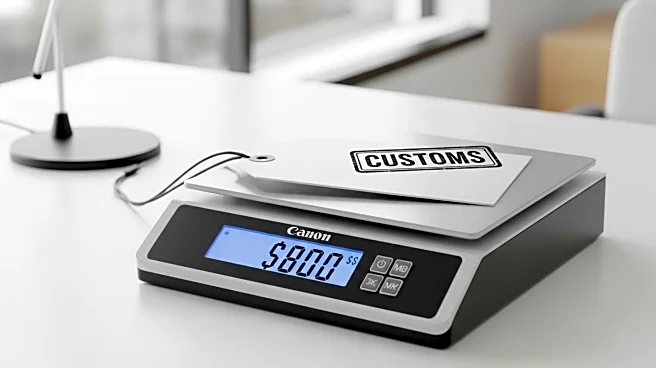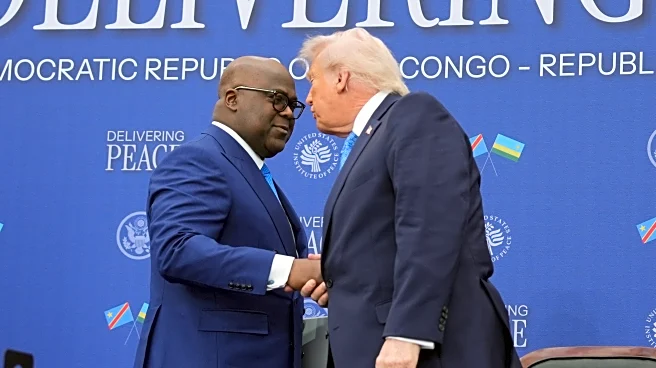What's Happening?
The United States is set to eliminate a tariff exemption for imports valued at $800 or less, effective Friday. This change will impose charges ranging from 10% to 50% of the declared value or a flat duty of $80 to $200 per parcel for the next six months. The exemption's removal is expected to cause 'sticker shock' among consumers accustomed to duty-free international shopping. Retailers may absorb some costs, but confusion over new duties could lead to delays. Consumers are advised to check product origin and delivery duty terms to avoid unexpected charges.
Why It's Important?
The end of the 'de minimis' exemption marks a significant shift in U.S. trade policy, potentially increasing costs for consumers and affecting international e-commerce. Retailers like Shein and Temu, which rely on low-cost imports, may face challenges, impacting their pricing strategies. The change could also disrupt supply chains, as foreign postal services and shipping companies adjust to new requirements. This policy shift may benefit domestic manufacturers by reducing competition from cheap imports, but it could also lead to higher prices for consumers.
What's Next?
As the exemption ends, businesses and consumers will need to adapt to the new tariff landscape. Retailers may seek to mitigate costs by sourcing products domestically or adjusting pricing strategies. The U.S. Customs and Border Protection will play a crucial role in enforcing the new duties, potentially leading to increased scrutiny of imports. International shipping companies and postal services may face operational challenges as they navigate the new regulations. Consumers should remain vigilant about potential price increases and delays in receiving international orders.










